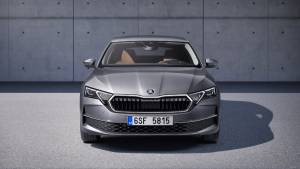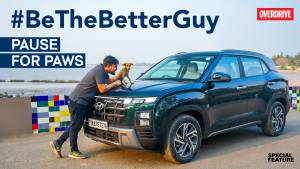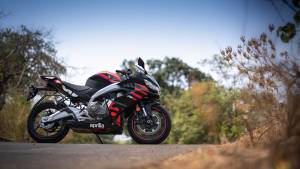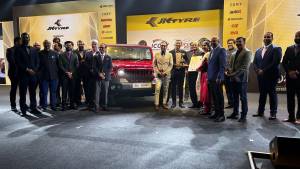Interview: Global NCAP's David Ward on crash testing Indian cars
We caught up with David Ward, president and CEO, Global NCAP, on the sidelines of the Tata Altroz launch. He speaks to us about the 'Safer Cars for India', why Indian car manufacturers are doing so well in this and where such tests are headed in the future.
 Image Source: David
Image Source: David
Can you tell me the difference in standards between the Euro NCAP, the ASEAN NCAP and the global NCAP?
The Safer Cas for India project uses the standard crash tests like the frontal impacts and side impacts. These are the same ones used by the Euro NCAP, China NCAP, ASEAN NCAP and Latin NCAP. The main difference is that the Euro NCAP has additional test requirements, that are the most advanced in the world. But today with the combination of new regulations in India that the government has introduced and our crash-testing programme, it is taking the Indian safety levels to world-class levels. Even exceeding the US for example, which doesn't apply pedestrian tests. We are a huge transformation in the safety performance of vehicles in India.
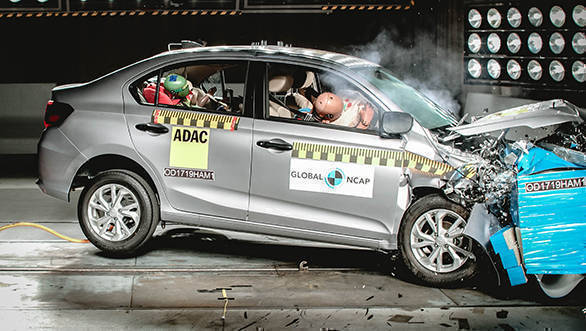
Under the safer cars for India programme, how do you choose which cars you will test?
We have two main sources, one, the manufacturers want their vehicles to be tested and we are happy to do that. They want to get their cars tested because they expect a very good result so we need to keep resources to test those that don't want to test their cars. We are fortunate that with the support of Bloomberg Philanthropies and the Toward's Zero Foundation, we are able to chose cars that otherwise wouldn't get tested.It's an expensive business, cras-testing, and we don't have unlimited funds. So, we try to chose the cars manufacturers don't want to get tested as well as the very important ones in the market.
Why don't you expand this for all the vehicles sold in India?
For us it's simply a question of resources. In principle, it is a good idea. One possibility that is something we even want to talk to the government about is the possibilty of having a rating label mandatory at the point of sale for all new cars. That would then give manufacturers a huge incentive to have cars tested. That exists in the US and even Malaysia now from March onwards. That will be true for ASEAN NCAP testing, Maybe that's the way to go, and spread the testing right through the Indian market.
You just spoke about the government. So what is the level of cooperation and how much you think you can work with the Indian government? Because as far as I know, the government is going to get its own crash test in the future. The crash test norm will become mandatory in India in the future.
The crash testing is already mandatory and we have a very good, constructive relationship with the Indian government. And from 2015 they had rolled out a whole series of crash test norms.They are already in force and we congratulate them for that. And we have continued with dialogue with them, and they have encouraged us to keep going with the 'Safer Cars For India' project. We are hoping that this will become an entirely Indian-based permanent NCAP programme. I think that will emerge over the next few years.
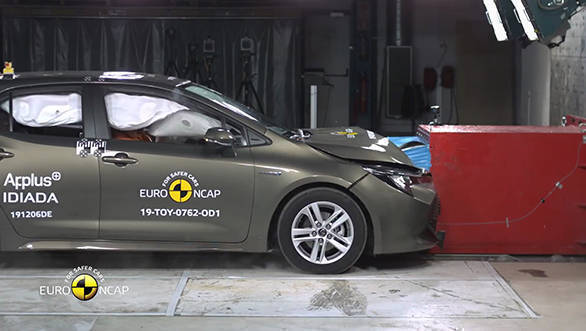
In this scenario, how is this different from what you do in Europe?
In a way, its simply an earlier stage in the evolution of NCAP testing. Euro NCAP has now been in existence for over 20 years, and it caters to one of the most advanced vehicle markets. So, of course, the testing is of different levels and includes the latest technologies like autonomous braking. But on the other hand, if you look at the rate of progress India is making huge progress in the last five years. So, it's really a benchmark for success over the last decade, India has probably made more advancements in vehicle safety than any other country.
Who's supporting you in global NCAP and testing these cars?
Our principles supporter is the philanthropic organisation set up by Michael Bloomberg, former mayor and current US presidential candidate. His philanthropy is a very important supporter of ours and the other is the FIA foundation, a foundation that has been set by the International Association of Recognized Automobile Clubs. They have been extremely important for us in giving support, and without that, we could not have been doing what we are doing today.
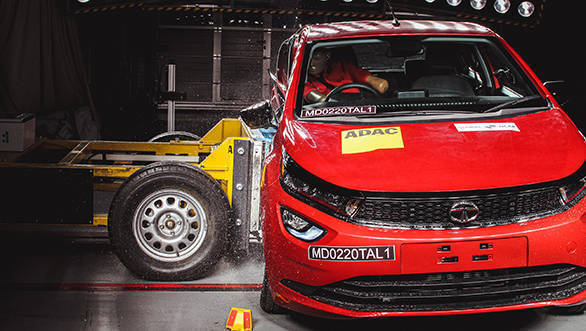
Now focusing on India, the Indian manufacturers like Tata and very recently even Mahindra have got a 5-star rating. What are they doing differently, let's say in comparison with the Japanese or Korean manufacturers, who haven't done as well?
Strictly speaking, Global NCAP is neutral. We want all manufacturers to do well, whether they are famous Indian brands or global brands sort of doesn't matter. Speaking personally, having been involved in this project over the past five years, I am delighted to see that they have stepped up. Now not only Tata but another major brand Mahindra. With this, you have to say, imitation is the sincerest form of flattery. Of course, with others, we would like to see more progress, like Maruti Suzuki. Also the big global brands. In the end, our interest is to give the consumers the safest choice they can, to encourage all the manufacturers to produce the safest cars they can at the most affordable prices. The ideal situation would be a combination of factors, government minimum standards, based on UN crash test and safety regulations which can then be applied right across the world. Then consumer testing programs that can stretch the performance above that. That's the successful formula that has worked so well, and its certainly working very well in India.
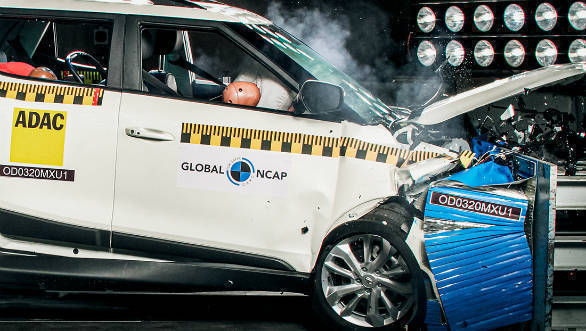
Tell me how these test scores work. For example, the Nexon has a 5-star rating for safety for the adult occupant but 3 stars for child safety, but the XUV 300 has a five and four respectively but a 5 star overall? Why is there a discrepancy?
There are two separate ratings, and not a combined one. One is for adult occupants and the other for child occupants. They're not aggregated into one rating. Again, we want to inform consumers about the choice available to them. Child seats and child protection is obviously a very important issue. There are big challenges there. Manufacturers usually don't make child-seats themselves. We always ask them to recommend which child seats to fit. I think the big challenge for the child-seat industry is to make affordable, more widely available, good quality child safety cars and that's what I would like to see more as well.
Can you tell me is there a chance now, with what Tata and Mahindra have done, on safety becoming a selling point or a strong suit for the carmaker to have it? Do you think the way it happened in Europe with the emission norms where the manufacturers decided to fine-tune their cars to specifically perform well in these but not in the real world? Do you think the same about these tests as well?
Whenever you develop a test, you're creating a theoretical scenario and its true that manufacturers then engineer to do as well as they can in that kind of test. In fact, one of the reasons for setting the speed bar up to 64 on the frontal impact test is that you are actually dealing with a lot more energy. That's good for a whole range of other crash configurations as well, it may be slightly different than in emissions testing. I think the chances of blatant cheating as went on in emissions testing and the Dieselgate scandal is slightly less likely.
But what is true is that we have to constantly look at how we are running the test. And that's why they evolve over time. Most NCAPs in three, four or five years updated their protocols, they can make them more stringent or add in other criteria. Probably the most important are the crash avoidance technologies like ESP, So one always has to be imprudent about making sure the tests are stretching the manufacturer's performance. They are not regulatory minimums, they are meant to be set above that. That's what we want to keep uer our view.
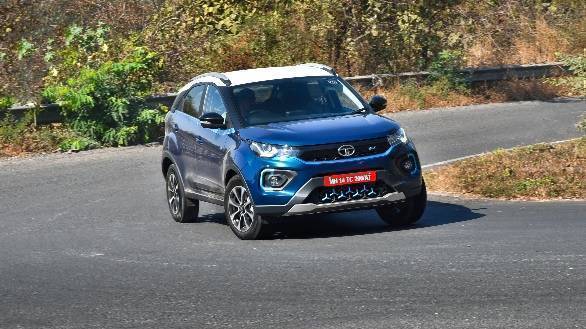
Now that we have the Nexon EV, will your testing scenarios change or how do you think those cars will perform, are they as safe as regular combustion engine cars?
Well, in principle, EVS should meet the same crash test parameters. Euro NCAP has designed tests for Evs and we will simply run the same tests. There are some speciifc challenges to EVs, mainly to do with the security of the battery in crash scenarios. There's a UN standard being developed for EVs. We can include that in our test program comfortably. We have no reason to expect EVs to perform not as well as the results we've seen today.
Starts Rs 6 Lakhs
1497cc
Manual
86
200
-NA-
